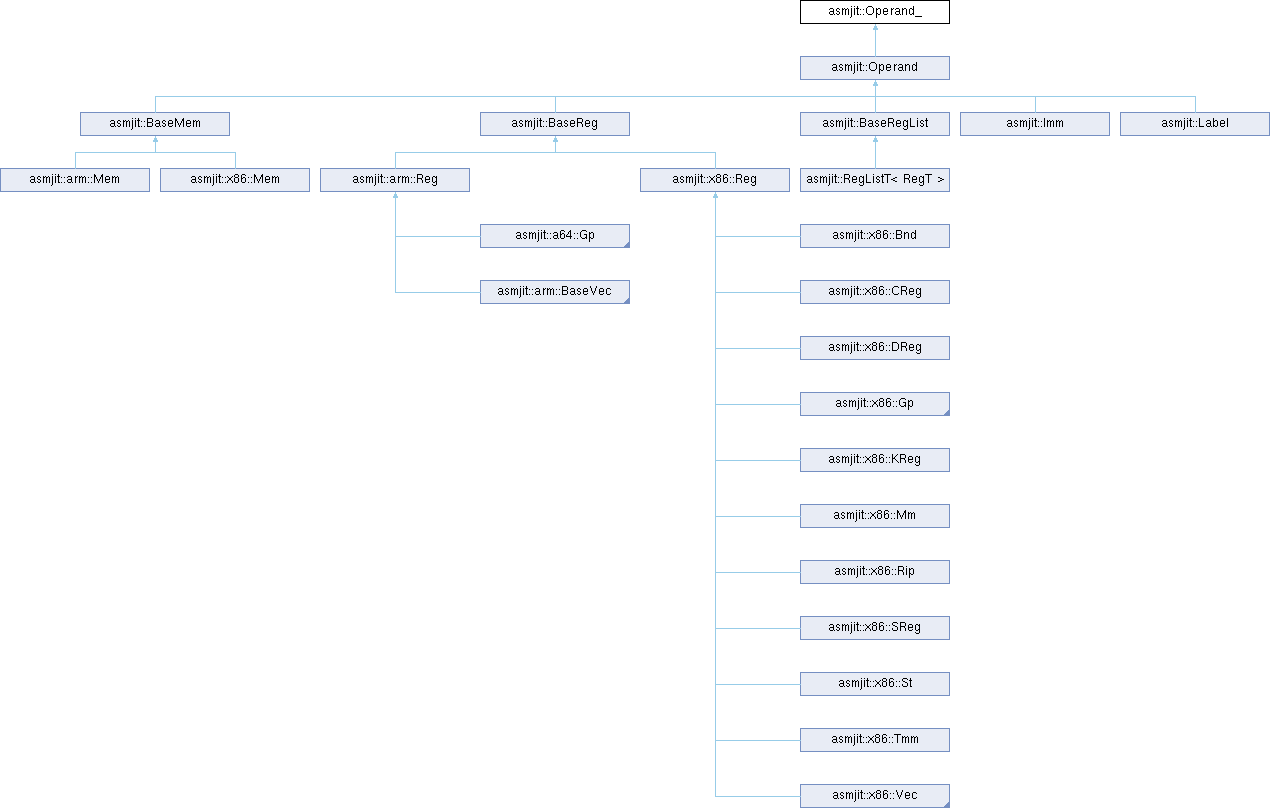asmjit::Operand_ Struct Reference [¶]

Base class representing an operand in AsmJit (non-default constructed version).
Contains no initialization code and can be used safely to define an array of operands that won't be initialized. This is a Operand base structure designed to be statically initialized, static const, or to be used by user code to define an array of operands without having them default initialized at construction time.
